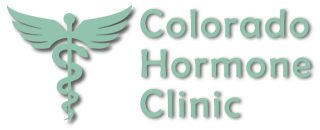Testosterone for Men
Testosterone has always been known as the male sex hormone. It has recently been shown to be linked to longer healthier lives in both men and women. As testosterone levels decline with age, there are health problems that accompany this loss of hormone. Testosterone replacement has been shown to be effective in providing many health benefits. Testosterone replenishment results in increased muscle strength and lean body mass, improved sexual response, reversal of impotence, and improved body composition. Testosterone has also been shown to prevent osteoporosis, arthritis and degenerative joint change. It improves the sense of well-being and depressed mood that are frequently seen in andropause (male menopause). It has also been shown to improve memory, as does estrogen in women. Most of all it has been shown to protect against cardiovascular disease in both men and women.
Men who receive testosterone replacement consequently report that they feel sexier, stronger and healthier. They state that it makes them feel as they did when they were in their prime. After all, this is what replenishment of hormones is all about. It is about restoring hormones to youthful levels so you can feel as you did when you were at the peak of your physical and mental ability. Testosterone can slow down the physical decline that robs men of their energy, strength and libido. Testosterone can restore muscle tone and improve stamina. Testosterone can restore healthy sexual excitement and desire, which in turn results in an improvement in mood and overall well-being.
Testosterone is responsible for the sex drive of both men and women. As testosterone diminishes with age, so does the sexual functioning in both men and women. Restoring testosterone to youthful levels can reverse this situation. All too often, men and women automatically assume that as they age, their sexual capacity will diminish. There is no need to accept this loss of sexuality. Testosterone can play a critical role in helping to preserve and even restore sexual desire and function so that we can live our extended life span with the same excitement and enthusiasm we enjoyed in our youth.
Physicians are witnessing an explosion of interest in testosterone as a result of our growing realization that testosterone levels decline with age and that many men suffer serious consequences to their physical and mental health as a result. In women, it is expressed as menopause, whereas in men, it is expressed as andropause. Many of these symptoms and disease processes that we have come to accept as the result of normal aging are processes that are actually secondary to low testosterone levels and are easily correctable. Testosterone supplementation results in increased muscle strength, muscle size, increased energy level, decreased fat, and increased desire and endurance for exercise. As a result of this, the FDA recently approved the testosterone patch and topical gel. Now both men and women may be treated for their sex hormone deficiencies.
How many of the supplements that we take are not only beneficial to our health but also result in increased energy, increased stamina, and an elevated mood? What other supplement can build a strong body, strong muscles, strong bones, strong ligaments, and trim fat at the same time? An added benefit is an improved desire to exercise due to less exhaustion and lethargy. Clearly, testosterone is shown to have a positive impact on men’s health and well-being, our mood and our ability to learn and retain information.
There is good evidence that testosterone deficiency plays a role in heart disease. Despite many well-designed clinical research studies documenting a broad range of cardiovascular benefits from testosterone, it is virtually ignored by U.S. cardiologists. Patients with the greatest arterial blockage have the lowest testosterone levels from one recent study of 2500 men. This study from UC San Diego not only showed that men with higher baseline levels of testosterone had less cardiovascular disease, but supplementing to youthful levels prevented worsening of cardiovascular disease. In spite of this data available in the medical literature, physicians remain somewhat oblivious or resistant to the benefits of testosterone.
Testosterone supplementation helps reduce obesity, raise lean body mass, normalize blood clotting and raise the good HDL cholesterol, all of which decrease the incidence of diabetes and cardiovascular disease. It also prevents cognitive decline and Alzheimer’s Disease even better than estrogen in women. A recent medical study showed testosterone reduced C-Reactive Protein levels (CRP) a measurement of inflammation in blood vessels. Testosterone protected against heart attacks and progression of heart disease. Yes, testosterone has been demonstrated to increase lifespan. A recent study from the Annals of Internal Medicine demonstrated that men with the higher levels of testosterone lived the longest. Men with lower levels of testosterone did not live as long. This makes one wonder why most physicians fail to recommend testosterone for all men.
Testosterone should not be used if one has active prostate cancer. Multiple medical studies have proven that testosterone has not been shown to cause prostate cancer. In fact, low levels of testosterone are associated with more aggressive tumors. However, if one does develop prostate cancer, testosterone supplementation might accelerate the growth levels of the tumor. Therefore, there is a need to monitor the PSA on a regular basis to assure that one does not develop prostate cancer. Prostate cancer is the most common cancer in men. It can often be detected by an annual PSA test.
A recent summary article appeared in the New England Journal of Medicine, January 2004. The authors concluded, “We reviewed decades of research and found no evidence that testosterone therapy causes prostate cancer.” In fact, prostate cancer became more prevalent later in life when testosterone levels decline. The authors found no connection between higher testosterone levels and prostate cancer or any evidence that testosterone treatment provokes cancers. Researchers found no evidence that testosterone therapy causes prostate enlargement (BPH). More importantly, testosterone was found to significantly protect against heart disease. Testosterone was found to be a beneficial and safe hormone.


